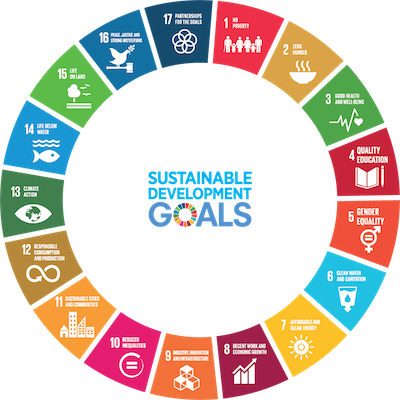Climate Action Plan
The impact of climate change is one of the most pressing issues of our time. It has become clear that we must all act to reduce our carbon footprint and promote sustainability. Universities have a unique role to play in this effort, as they are centers of education, research, and innovation. GUST climate action plan is an essential tool for reducing greenhouse gas emissions, mitigating the effects of climate change, and promoting sustainable practices both on and off campus.
Our climate action plan at GUST, typically includes a range of initiatives aimed at reducing the university's carbon footprint. One key component is reducing energy consumption. This can be achieved through a variety of measures, such as upgrading HVAC (Heating, Ventilation and Air Conditioning) systems, installing energy - efficient lighting, installing renewable energy systems, and promoting energy conservation behaviors among students and staff. For example, we incentivize students and staff to reduce their energy usage by offering rewards for those who turn off their lights or unplug electronics when they are not in use.
We at GUST are planning to digitize all paper documents and internal memos by the year 2025. We are also working on digitizing all letters and contracts with our business partners. The latter will take serious action and commitment from our side as many external organizations still prefer paperwork.
Another critical component of GUST climate action plan is promoting sustainable transportation.Encouraging the use of public transportation, biking, and walking, as well as the adoption of electric and hybrid vehicles, can significantly reduce the carbon emissions associated with transportation. Universities can work with local transportation authorities to provide students and staff with discounted or free public transit passes, and can provide incentives for those who choose to bike or walk to campus.
In addition to these measures, universities can also take steps to reduce waste and promote sustainable food practices. This can include initiatives such as composting and recycling programs, as well as sourcing food from local, sustainable producers. Universities can also work with food service providers to reduce food waste and encourage healthy, plant-based diets. Our university's climate action plan also includes initiatives aimed at promoting sustainability beyond the campus, as we partner with local businesses and organizations to promote sustainable practices in the wider community, and work with policymakers to advocate for climate-friendly policies at the local, state, and national levels.
In conclusion, a university climate action plan is an essential tool for reducing greenhouse gas emissions, mitigating the effects of climate change, and promoting sustainable practices both on and off campus. By implementing initiatives aimed at reducing energy consumption, promoting sustainable transportation, reducing waste and promoting sustainable food practices, and promoting sustainability beyond the campus, universities can play a critical role in the effort to address climate change.
The Sustainability Plan will help develop a sustainable, healthy, and resilient campus. We are acting to make a change. Research and enlightenment for faculty and students. GUST has a long history of sustainability leadership — from early energy efficiency efforts to the formation of the Center for Sustainable Energy and Economic Development (SEED) [1]. Here at GUST, we have courses that relate directly to the sustainability development goals (SDGs) as with our academic research. To practice what we teach, GUST always initiate activities and events that tackle environmental issues and human development [2].
Goals
- Main goal: Fossil fuel free by the year 2050
- Sub goal: Fossil fuel neutral by 2026
- Digitize all paper documents by 2025
- GUST campus becomes a living “lung” in the area
Timeline
- Sustainability Principles adoption
- Initial climate goal announcement
- Climate Change Solutions Fund created to support cutting-edge climate research
- University-wide Sustainability Plan released, focused on climate, health…
- Short-term climate goal achieved; campus energy use reduction
- Campus Sustainability Innovation Fund and Climate Change Solutions
- New Climate Action Plan announced signaling transition to a fossil-fuel-free campus by 2050
GUST President statement: GUST Climate Change Efforts
- Mention past announcement about environment and climate
- List actions that have been taken
- List some statistics and changes
- Talk about challenges and how to overcome them
- This is everyone's responsibility and everyone counts: changing culture
- AQA recommendations
- Goals and tracking our progress
Faculty Responsibility
- Faculty research on reducing greenhouse gas emissions
- Report to president on how to implement the researches with positive outcomes
- Sustainability courses
Students Newsletter
- Always updated with latest news and activities
- Social outlets posts with links to the newsletter from GUST's website
Individuals Responsibility
- Less use of paper (If it can be in an email, then no need to print it)
- Turn off all devices when leaving the office after work
- Replace plastic
- Recycle
- If it's close to you, walk to it
- Natural light is much better
Organizational Responsibility
- Keep track of the following:
- Energy consumption
- Water consumption
- Waste generated
- CO2 emissions
- Renewable energy production
- Shift to green energy sources
- Encourage students to use university transportation
- Plant more trees and provide offices with indoor plants
- Encourage faculty to publish research on sustainability
- Teach sustainability specialized courses
- Host sustainability workshops, seminars and events
| N° | Action | Department | Deadline |
|---|---|---|---|
| 1 | Write Sustainability President Statement | VPAA | TBE |
| 2 | Fund sustainability Research | GSR | TBE |
| 3 | Courses specialized on Climate/environmental science | Colleges | TBE |

 Main Page
Main Page Download PDF
Download PDF